第32章 THE SIXTH - EXEGETICAL(1)
WITHOUT any sense of transition the bishop found himself seated in the little North Library of the Athenaeum club and staring at the bust of John Wilson Croker.He was sitting motionless and musing deeply.He was questioning with a cool and steady mind whether he had seen a vision or whether he had had a dream.If it had been a dream it had been an extraordinarily vivid and convincing dream.He still seemed to be in the presence of God, and it perplexed him not at all that he should also be in the presence of Croker.The feeling of mental rottenness and insecurity that had weakened his thought through the period of his illness, had gone.He was secure again within himself.
It did not seem to matter fundamentally whether it was an experience of things without or of things within him that had happened to him.It was clear to him that much that he had seen was at most expressive, that some was altogether symbolical.For example, there was that sudden absurd realization of his sash and gaiters, and his perception of them as encumbrances in his pursuit of God.But the setting and essential of the whole thing remained in his mind neither expressive nor symbolical, but as real and immediately perceived, and that was the presence and kingship of God.God was still with him and about him and over him and sustaining him.He was back again in his world and his ordinary life, in his clothing and his body and his club, but God had been made and remained altogether plain and manifest.
Whether an actual vision had made his conviction, or whether the conviction of his own subconscious mind had made the dream, seemed but a small matter beside the conviction that this was indeed the God he had desired and the God who must rule his life.
"The stuff? The stuff had little to do with it.It just cleared my head....I have seen.I have seen really.I know."(2)
For a long time as it seemed the bishop remained wrapped in clouds of luminous meditation.Dream or vision it did not matter; the essential thing was that he had made up his mind about God, he had found God.Moreover, he perceived that his theological perplexities had gone.God was higher and simpler and nearer than any theological God, than the God of the Three Creeds.Those creeds lay about in his mind now like garments flung aside, no trace nor suspicion of divinity sustained them any longer.And now--Now he would go out into the world.
The little Library of the Athenaeum has no visible door.He went to the book-masked entrance in the corner, and felt among the bookshelves for the hidden latch.Then he paused, held by a curious thought.What exactly was the intention of that symbolical struggle with his sash and gaiters, and why had they impeded his pursuit of God?
To what particularly significant action was he going out?
The Three Creeds were like garments flung aside.But he was still wearing the uniform of a priest in the service of those three creeds.
After a long interval he walked into the big reading-room.He ordered some tea and dry toast and butter, and sat down very thoughtfully in a corner.He was still sitting and thinking at half-past eight.
It may seem strange to the reader that this bishop who had been doubting and criticizing the church and his system of beliefs for four long years had never before faced the possibility of a severance from his ecclesiastical dignity.But he had grown up in the church, his life had been so entirely clerical and Anglican, that the widest separation he had hitherto been able to imagine from this past had left him still a bishop, heretical perhaps, innovating in the broadening of beliefs and the liberalizing of practice, defensive even as Chasters was defensive, but still with the palace and his dignities, differing in opinion rather than in any tangible reality from his previous self.For a bishop, disbelief in the Church is a far profounder scepticism than mere disbelief in God.God is unseen, and in daily things unfelt; but the Church is with the predestined bishop always.His concept of the extremest possible departure from orthodoxy had been something that Chasters had phrased as "a restatement of Christ." It was a new idea, an idea that had come with an immense effect of severance and novelty, that God could be other than the God of the Creed, could present himself to the imagination as a figure totally unlike the white, gentle, and compromising Redeemer of an Anglican's thought.That the bishop should treat the whole teaching of the church and the church itself as wrong, was an idea so new that it fell upon him now like a thunderbolt out of a cloudless sky.But here, clear in his mind now, was a feeling, amounting to conviction, that it was the purpose and gesture of the true God that he should come right out of the church and all his professions.
And in the first glow of his vision he felt this gesture imperative.He must step right out....Whither? how? And when?
To begin with it seemed to him that an immediate renunciation was demanded.But it was a momentous step.He wanted to think.
And to go on thinking.Rather than to act precipitately.Although the imperative seemed absolute, some delaying and arresting instinct insisted that he must "think" If he went back to Princhester, the everyday duties of his position would confront him at once with an effect of a definite challenge.He decided to take one of the Reform club bedrooms for two or three days, and wire to Princhester that he was "unavoidably delayed in town,"without further explanations.Then perhaps this inhibitory force would give way.